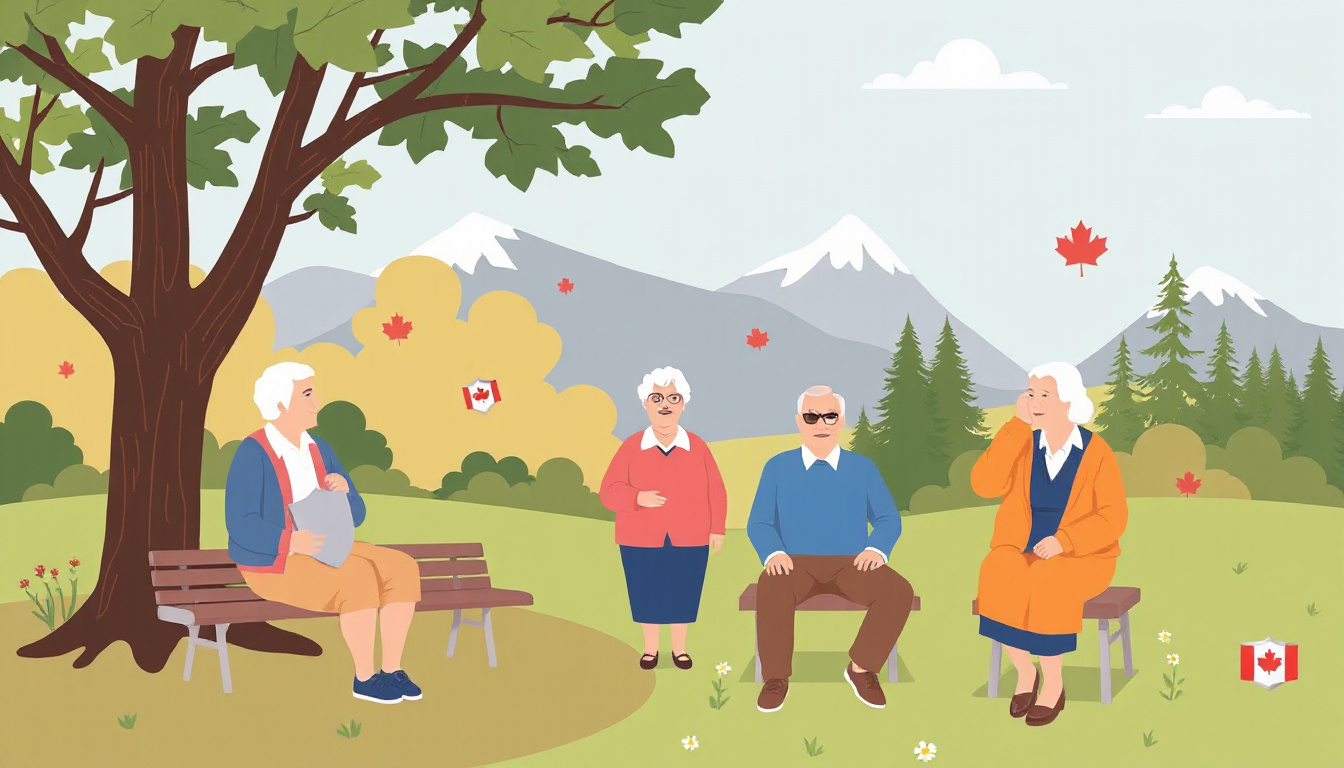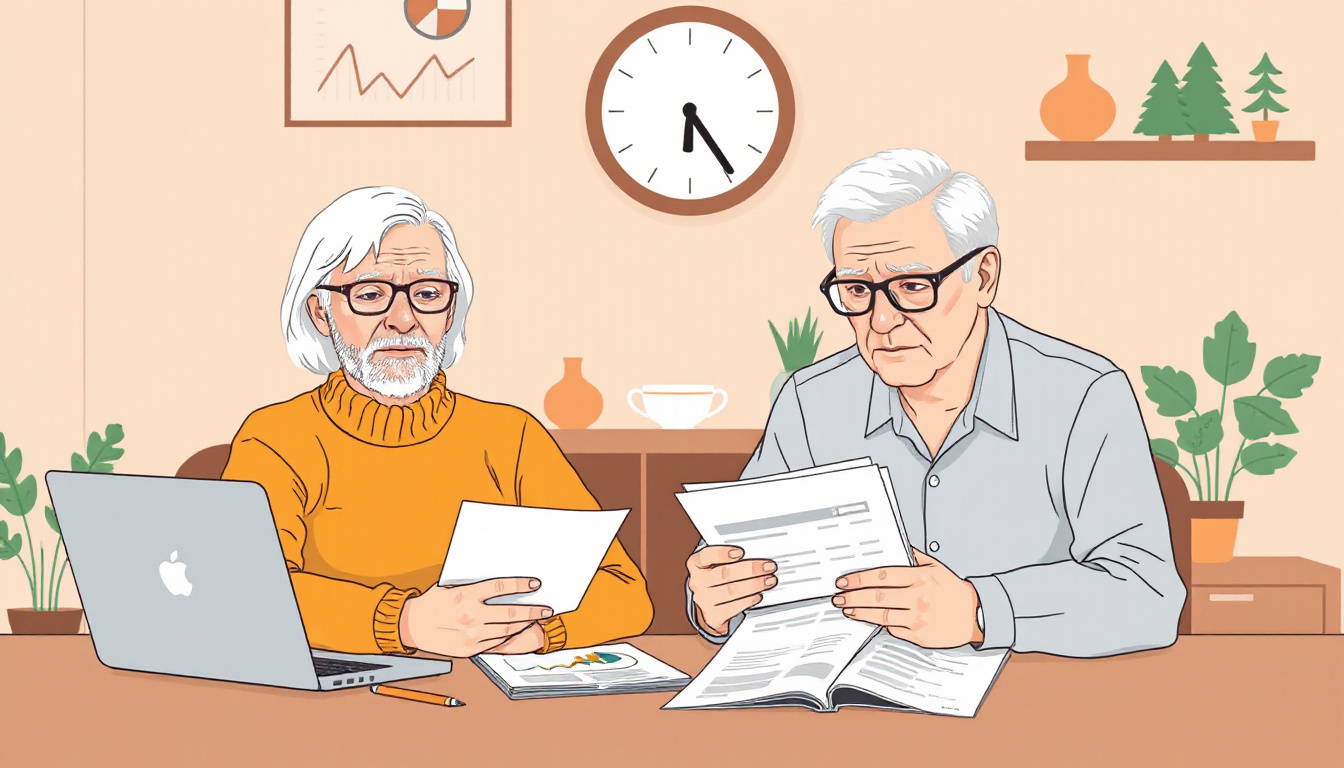As a senior in Canada, facing financial difficulties can be incredibly stressful, especially when dealing with debts owed to the Canada Revenue Agency (CRA). One common issue many seniors encounter is the potential for CRA garnishment of their income or bank accounts. Understanding your rights and options is essential to navigating this challenging situation. In this article, we will explore the protections available for seniors against CRA garnishment, strategies for managing debt, and resources that can assist you during this challenging time.

Key Takeaways
- CRA garnishment can significantly impact seniors’ financial stability.
- Federal laws provide specific protections for seniors against debt collection practices.
- Seniors can implement various strategies to manage and mitigate CRA garnishments.
- Understanding what income is exempt from garnishment can help seniors protect vital resources.
- There are numerous resources available to assist seniors in navigating CRA garnishment challenges.
Understanding CRA Garnishment and Its Implications
When it comes to understanding the implications of CRA garnishment, many seniors often wonder, ‘Are seniors protected from CRA garnishment?’ Garnishment is an action the Canada Revenue Agency (CRA) can take to recover unpaid taxes by seizing funds directly from an individual’s bank account or wages. This can be a concerning issue for seniors, as fixed incomes from pensions or retirement savings may suffer from such actions. Fortunately, there are certain protections available for seniors under specific circumstances. For example, if you receive certain types of income, such as Old Age Security (OAS) and the Guaranteed Income Supplement (GIS), these funds are typically exempt from garnishment. Understanding your rights and the protections available can significantly alleviate the financial strain caused by CRA garnishment.
Federal Protections for Seniors Against Debt Collection
## Federal Protections for Seniors Against Debt Collection
In Canada, seniors do have certain protections against aggressive debt collection practices, including garnishments from the Canada Revenue Agency (CRA). Understanding these protections is vital for seniors who may be struggling with debt. Generally, the CRA can garnish wages or bank accounts to satisfy outstanding tax debts. However, there are legal limitations and regulations designed to protect vulnerable populations, including seniors.
Under the Income Tax Act, garnishment actions must follow a structured process. Specifically, the CRA must first notify the debtor of any debts owed and may take legal action if the matter remains unresolved. However, seniors may benefit from additional protections depending on their province. For example, in some regions, pensions, old age security benefits, and guaranteed income supplements are exempt from garnishment, meaning creditors cannot take these funds to satisfy debts.
Moreover, various provincial Consumer Protection Acts have provisions to safeguard seniors against unfair collection tactics. It is crucial for seniors to know their rights and seek assistance from local legal aid services or community organizations specializing in debt issues. By being informed, seniors can better navigate the complexities of debt collection and take advantage of the protections available to them.
‘The true measure of a man is what he would do if he knew he would never be caught.’ – Thomas B. Macaulay

Strategies for Seniors to Manage CRA Garnishment
## Strategies for Seniors to Manage CRA Garnishment
As a senior, dealing with financial issues can be daunting, especially when it comes to Canada Revenue Agency (CRA) garnishment. If you’re wondering, ‘Are seniors protected from CRA garnishment?’ the answer isn’t straightforward. While some protections exist, it’s crucial to understand your rights and explore strategies to manage the situation effectively.
1. Understand What CRA Garnishment Is: CRA garnishment occurs when the agency deducts money directly from your bank account or income to settle unpaid taxes. The CRA has the authority to collect these debts, but they must follow legal procedures.
2. Check for Fixed Income Exemptions: If you have a fixed income from sources like pensions, certain portions may be exempt from garnishment. Understand what income is protected under federal and provincial laws. In Canada, essential benefits like Old Age Security (OAS) and the Guaranteed Income Supplement (GIS) are generally exempt from CRA garnishment.
3. Set Up a Payment Arrangement with the CRA: If you owe taxes, consider reaching out to the CRA to negotiate a payment plan. They may be more willing to work with you than you think, especially if you’re experiencing financial hardship due to fixed income.
4. Consult a Financial Advisor or Tax Professional: Sometimes, garnishment can lead to confusion and added stress. Engaging with a financial advisor or tax professional who understands the nuances of senior finances can be very beneficial. They can help you strategize on managing your debts and potential garnishments.
5. Talk to a Credit Counsellor: A credit counselling service can provide you with advice on managing your debts and help you create a budget tailored to your financial circumstances. They may also assist you in negotiating with creditors, including the CRA.
6. Know Your Rights: Seniors have specific rights when it comes to CRA actions. Familiarizing yourself with these can help protect your income from unfair garnishments. The Taxpayer Bill of Rights outlines these protections, including the right to privacy, the right to be treated professionally, and the right to a fair appeal process.
7. Seek Legal Advice if Necessary: If you believe the CRA is garnishing your income illegally or without due cause, it may be time to seek legal counsel. Lawyers who specialize in tax law can provide the necessary support to challenge a garnishment.
By following these strategies, seniors can take proactive steps to manage CRA garnishment effectively and ensure their rights are upheld.
Resources for Seniors Facing CRA Garnishment Issues
CRA garnishment can be a daunting experience, particularly for seniors who may be living on a fixed income. Fortunately, there are protections and resources available for those facing such issues. In Canada, the Income Tax Act and provincial regulations allow certain exemptions for seniors, including basic necessities that can’t be garnished. Seniors are often not subject to garnishment of their Old Age Security (OAS) or Guaranteed Income Supplement (GIS). However, it is essential to seek advice from professionals, such as financial advisors or legal services, that specifically cater to seniors. Organizations like the Canadian Centre for Elder Law provide resources and guidance on protecting one’s assets from garnishment. Additionally, local community services can offer support in navigating this distressing issue.
Frequently Asked Questions
What is CRA garnishment?
CRA garnishment refers to the process by which the Canada Revenue Agency (CRA) takes money directly from a taxpayer’s bank account or wages to settle unpaid debts or taxes owed to them.
Are seniors protected from CRA garnishment?
While seniors are not fully exempt from CRA garnishment, there are certain federal protections in place that may help reduce the impact. This includes specific thresholds for basic living expenses and considerations for those with low income.
What federal protections exist for seniors against CRA garnishment?
Federal protections for seniors include exemption limits on certain income types such as pensions and possibly some federal benefits. Seniors may also apply for a Taxpayer Relief Provisions request to seek relief from garnishment.
What strategies can seniors use to manage CRA garnishment?
Seniors can manage CRA garnishment by negotiating payment plans with the CRA, seeking professional tax advice, utilizing financial counselling services, and ensuring they stay informed about their rights and protections.
Where can seniors find resources for CRA garnishment issues?
Seniors can access resources through legal aid clinics, community organizations, financial advisors specializing in tax issues, and the official CRA website, which contains information relevant to debt collection and taxpayer rights.
